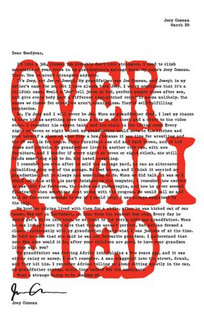Overqualified for a job?: How to Go from Overqualified to Employed
Have you ever been told you have too much experience to get the job you’d like to have? Told you’re ineligible and overqualified for a job because you have 10 years of experience when you only need three? Or simply applied for a job in which you met all of the position requirements – but never heard back?
back?
Unfortunately, it’s not unusual for employers to reject applicants on the basis of being overqualified for a job – often employers will do this without even inviting you in for an interview.
I call this the “Goldilocks Syndrome”: In the classic children’s fairy tale, Goldilocks prefers her porridge “not too hot” and “not too cold” – but “just right.” In hiring new employees, many employers do the equivalent: They prefer to hire candidates for a job who are “not inexperienced” and who don’t have “too much experience.” They want the candidate they hire to have roughly the same amount of experience they imagined on paper when they wrote out the job description.
Fortunately, there are strategies you can use in the job search process to ensure that your application gets viewed, so that you can be seen as a potential hire – and not just as another resume in the pile. Here are four tactics you can use to apply for jobs where you exceed the general job requirements.
1. Determine what’s important to the employer.
Read the job description carefully, seeking out key words and level of experience requested for the role.
One quick way to do this is to try visualizing the key skills required for the job. Here’s our five minute secret for finding the “hot words” that can help you land your next interview.
Make sure you use these keywords in your resume summary and cover letter – and don’t aggressively market your many years of experience if the job only requires a small amount of experience.
2. Figure out how the job fits your skills and experience – and be concise in your cover letter to show a fit.
When employers write job descriptions and position summaries, they typically lead with the most important responsibilities of the job.
While many job applicants write cover letters that summarize their entire career in several paragraphs that start with “I,” an easier way to get noticed is to provide a comparison of your skills and the requirements for a job in your cover letter.
Example, “your available position as a Marketing Assistant” aligns closely with my skills and past experience.” Here is a match up:
You seek I offer
Experience with ad campaigns 2+ years ad campaign experience, including social media campaigns
3. Anticipate the employer’s question, “Why would you want this job?” and answer it.
If you are applying for the job because you’d like to switch industries or job functions, be clear on why you are motivated to apply for the job – and show the employer that you really want the position.
Why should you do this? Employers don’t know why you are applying for a job until you tell them. If you are obviously overqualified for the job, they may think that you would not be serious about the job – or that you are applying simply because you cannot get hired elsewhere.
If you are genuinely interested in the job, give the employer a reason why you’d like to work in the position.
Let’s say, for example, you are interested in a position as a Barista at Starbucks after years of experience as an accountant.
You might say, “for the past five years, my favorite part of the day has been my morning stops to Starbucks for a latte with a shot of espresso.” After working six 16-hour shifts in a row before April 15, I realized that I was going to Starbucks as much for the staff as for the caffeine. While I have all of your Barista equipment at home, the atmosphere you create for your customers is a unique one. I’d like to be a part of that.”
4. If you don’t get an interview – or don’t get the job offer after being interviewed. Follow up – and address the Goldilocks issue head-on.
You may even be able to get the employer to re-evaluate their decision.
A woman I know turned a rejection letter into a second interview and job offer with a thank you letter similar to this one:
Thanks for letting me know that I was not chosen for the _______________ job. I may look overqualified for the role because of my ____ years of experience in a job that only requires ______, but I was excited about the role because of the opportunity to do ___________________. I was also looking forward to the opportunity to learn more about _______________. Should you have openings in the future, I’d appreciate it if you could keep my resume on file, as I’d very much like to join your team.
(The employer called her up and asked her to come in within 48 hours.)
Note: If the job you’re applying to pays much less or is more junior, a way to tackle this is to say – that you’d be willing to start at the salary designated for the role – if there was a clear path to advancement within the company after sufficient time spent in the role!
Have you ever successfully used any of these four strategies to land a job despite being over-qualified? Or, alternatively, do you have another suggested tactic that works? Share.




